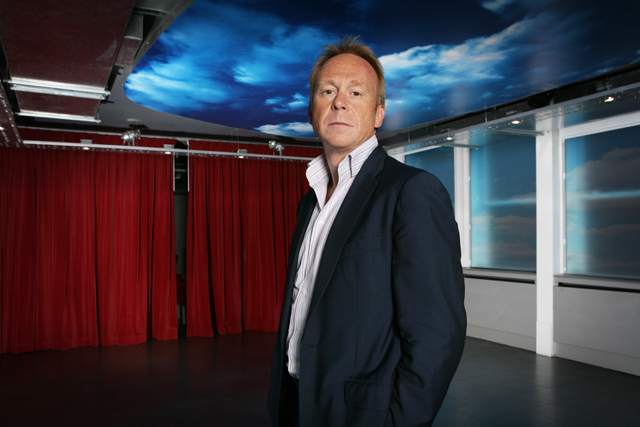A rather childish, even insolent reaction to the oft-requested: "I want a big idea." The phonetic similarity amused, so the Big Eyed Deer was born.
As a general rule, my heart sinks when an eager, recently promoted client requests a big idea. It's usually an early warning signal of "eyesies bigger than tummies" or, worse, a delusional cul-de-sac ending in their sudden departure from the company, and the agency finding itself in very long grass. Come to think of it, it's even worse when eager ad folk open meetings with "We've got a big idea for you today" - it's the kiss of death - along with "It's all fine".
To request a big idea is a noble pursuit - and the mot du jour - but the problem lies with imprecision of language. "I want a big idea" presupposes something that, at conception, is big. If only it were that easy. In fact, if it were, we'd all be doing it all of the time. And while virtually every agency claims to, we all know, deep down, that's cobblers. There are very few big ideas - a handful a year, I would guess - and the really big ones had no sense of their destiny at birth.
Ideas are not born big, they are made big through careful nurturing, developing, experimentation and reaction to an ever-changing landscape. As people consume and digest ideas with increasing speed, so the development and nurturing of the ideas must happen with increasing speed. How they start and where they end up are very often very different. Or, as the late, great Steve Jobs observed: "You cannot connect the dots looking forward; you can only connect them looking backwards.
So you have to trust that the dots will somehow connect to your future." It takes a fleet-of-foot newsdesk mentality and utter responsiveness to help turn a baby idea into a big'un.
In my experience, all ideas are born tiny, brittle and easy to crush with a flick of a pen or the contemptuous rolling of the eyes. You get zero points for killing ideas - any moron can do that. But you get top marks for building on an idea - seeing beyond the litany of practical problems (masquerading as strategic), suspending intellectual myopia and finance director scorn to indulge, just for a moment, in the imaginary world of "this could be great". Think about it: our finest clients, who definitely deserve the work they get, are all masters in the art of suspending the arc of today's reality. They understand that, when assessing work, the question should not be "Is this a big idea?"; rather, "Could it become big?"
Yes, the T-shirt gag is silly, and, yes, it's bordering on irresponsible. But, to date, it's been quite an effective way of saying that big ideas don't exist at birth - unless, of course, you go into the woods and track them down.
Robert Senior is the UK chief executive of the Saatchi & Saatchi Fallon Group


